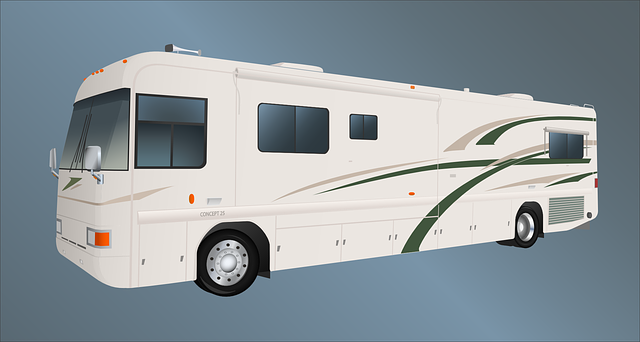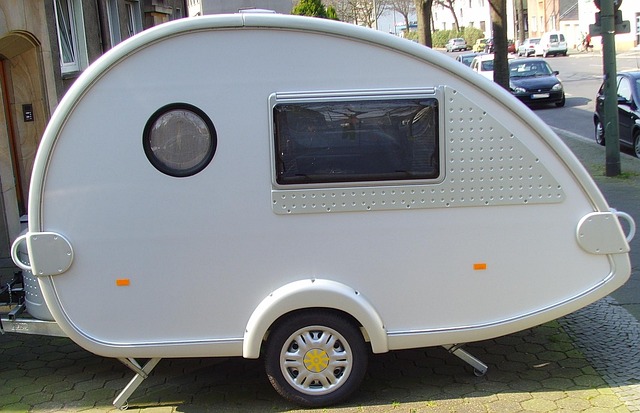Maintaining an RV battery requires a proactive approach to ensure longevity and reliability. Essential practices include regular charging with smart technology to prevent overcharging, refilling water in lead-acid batteries if necessary, and storing the RV indoors during cold months or in a temperature-controlled environment. Always inspect and clean battery terminals, ensure the battery is securely mounted, and monitor charge levels regularly. Deep-cycle batteries, such as AGM or gel types, are preferred due to their durability and efficiency in repeated charging cycles compared to traditional lead-acid models. Regular maintenance includes keeping the battery on a charger during long-term parking, assessing the battery's age and condition when buying a used RV, using solar panels for supplemental power, and performing equalizing charges before storage. Before storing the RV for an extended period, perform a full charge and inspect the case for damage or corrosion. Upon returning from storage, conduct a load test to ensure battery readiness. Adhering to these practices can significantly extend your RV battery's service life and provide a steady power supply for all your travels. RVers should also be vigilant about detecting issues like sulfation and overcharging, which can impair battery performance, and address them promptly or replace the battery if necessary. Regular upkeep and understanding the specific needs of your RV battery type are key to maintaining optimal efficiency on the road.
Embark on a journey to optimize your recreational vehicle’s power performance with our comprehensive guide on RV battery care. This article delves into the essential maintenance practices that extend your RV battery’s lifespan, categorized into clear, actionable tips. From understanding the nuances of different RV battery types and their distinct upkeep requirements to implementing daily and seasonal routines that ensure peak performance, our expert advice will keep you charged and ready for adventure. Additionally, we cover common issues and effective solutions to troubleshoot these power disruptions, ensuring your RV’s electrical heart beats strong for countless escapades.
- Maximizing Your RV's Longevity: Top 10 Tips for RV Battery Care
- Understanding RV Batteries: Types and Their Maintenance Needs
- Daily and Seasonal RV Battery Care Routines to Extend Life
- Troubleshooting Common Issues in RV Batteries and How to Address Them
Maximizing Your RV's Longevity: Top 10 Tips for RV Battery Care

When it comes to maximizing your RV’s longevity, proper care and maintenance of your RV battery are paramount. Here are the top 10 tips for RV battery care that will help you extend its life and ensure reliable power for all your adventures. Firstly, regularly check the water levels in lead-acid batteries or opt for maintenance-free models if your schedule is tight. Keeping the plates submerged in electrolyte solution is crucial for their performance. Secondly, charge your battery properly; avoid overcharging as this can damage the cells. Use a charger with a built-in microprocessor that automatically adjusts charging amperes and voltage to match the state of the battery, known as smart charging technology.
Thirdly, store your RV in a cool, dry place when not in use, as extreme temperatures can reduce battery life. If you’re parking for an extended period, keep the battery on a charger and disconnect it from the coach to prevent deep discharge which can happen if the battery is left untouched in storage mode. Fourthly, inspect your battery terminals regularly for corrosion and clean them as necessary to ensure optimal conductivity. Fifthly, make sure the battery is securely mounted to prevent movement that can cause internal damage over time.
Sixthly, monitor the battery’s charge level and avoid allowing it to fully discharge, which can shorten its lifespan. Seventhly, use the RV’s battery only for short-term power needs; do not rely on it as a constant power source like your home electricity. Eighthly, consider the state of the battery when purchasing a used RV; older batteries may require replacement soon. Ninthly, invest in a quality battery cover or box to protect it from the elements and prevent damage from external factors. Lastly, if you’re using an RV for extended periods in one location, consider solar panels as an additional power source to reduce the strain on your RV battery. Regular maintenance and understanding the specific needs of your RV battery will contribute significantly to its longevity and reliability, ensuring your journeys are powered without interruption.
Understanding RV Batteries: Types and Their Maintenance Needs

When it comes to RV batteries, understanding their types and maintenance needs is crucial for a seamless travel experience. There are primarily two types of RV batteries: lead-acid and deep-cycle batteries, with deep-cycle batteries being more favored due to their ability to undergo many more charge-discharge cycles. Lead-acid batteries, while historically common, are generally less efficient and have a shorter lifespan compared to the modern deep-cycle options. For deep-cycle batteries, such as those designed for AGM (Absorbed Glass Mat) or gel technology, regular maintenance includes keeping them charged, ensuring they’re properly secured in place to avoid movement that can damage the internal structure, and monitoring water levels if you have a traditional flooded lead-acid battery. Proper charging is essential; overcharging can shorten battery life, while undercharging can leave your RV without power when you need it most. Regular cleaning of terminals and checking for corrosion or loose connections will also enhance the performance and longevity of your RV batteries. Understanding the type of battery in your RV and its specific maintenance requirements is key to ensuring that it operates at peak efficiency, providing reliable power for all your RV adventures. Regular inspections, proper charging practices, and timely servicing will go a long way in maintaining the health of your RV batteries, ensuring they’re ready when you are, no matter where the road takes you.
Daily and Seasonal RV Battery Care Routines to Extend Life

To maintain optimal performance and extend the life of your RV batteries, establishing both daily and seasonal care routines is paramount. Daily checks should be a part of your regular routine while on the road or even during storage periods. Firstly, ensure that your batteries are properly charged; consistently maintaining a full charge can prevent sulfation, which impairs battery efficiency. Use a reliable charging system designed for RV batteries to avoid overcharging, as this can lead to reduced battery lifespan.
Secondly, monitor the water levels in flooded-type lead-acid batteries if applicable. Add distilled water as needed to maintain proper electrolyte levels without overfilling, as this can cause leakage or overflow during travel. For maintenance-free RV batteries, regularly inspect the battery case for any signs of bulging, cracks, or corrosion on terminals and connections. Clean and tighten all connections periodically to ensure a secure and conductive link between the battery and your RV’s electrical system.
Seasonal care is equally important, especially before and after extended periods of non-use. Prior to long-term storage, fully charge the batteries and allow them to partially discharge to roughly 50% capacity. This process, known as equalizing, can help prevent stratification of the electrolyte solution, which can occur during storage and potentially shorten battery life. Additionally, disconnect the batteries from any connected loads, including solar panels or inverters, to minimize self-discharge.
During the off-season, store your RV batteries in a cool, dry place, away from extreme temperatures that could freeze or overheat them. If temperatures are expected to drop below freezing where you’re storing the RV, consider a battery insulation kit to protect against cold weather damage. Upon retrieving your RV for the next season, perform a battery load test to assess its charge capacity and ensure it’s holding a proper charge before embarking on your travels once more. With these diligent daily and seasonal care routines, your RV batteries can serve you reliably for many years.
Troubleshooting Common Issues in RV Batteries and How to Address Them

When it comes to troubleshooting common issues in RV batteries, understanding the signs and knowing how to address them is crucial for maintaining the longevity and performance of your power source. One prevalent issue RVers face is a decreased battery capacity or voltage. This can be due to several factors such as sulfation, where sulfur crystals form on the lead plates, reducing the battery’s ability to hold a charge. To combat this, regularly conduct a voltage test and clean the terminals and connections to ensure optimal conductivity. If the issue persists, consider battery desulfation methods or replacing the battery if it’s beyond recovery.
Another common problem is overcharging, which can cause excessive gassing and heat buildup within the battery. This often occurs when the charger settings are incorrect or the charging system is malfunctioning. To prevent this, regularly inspect your charger’s settings and ensure they match the battery type and size. Additionally, monitor the battery temperature and charge level to avoid overcharging. If you suspect your RV battery is overcharging, check the charging system for faults, replace any damaged components, and consider installing a charge controller or regulator to maintain the correct charging voltage. Regular maintenance, such as checking electrolyte levels and ensuring proper ventilation, will also help in addressing these issues and ensuring your RV batteries operate efficiently throughout your travels.
maintaining an RV battery requires diligence and knowledge, as outlined in our comprehensive guide on RV battery care. From grasping the nuances of different RV battery types and their unique maintenance requirements to implementing daily and seasonal routines that extend their lifespan, these top 10 tips are designed to keep your RV’s power source reliable and ready for adventure. By staying vigilant for common issues and understanding how to address them, you can ensure your RV battery performs optimally. Remember, a well-maintained RV battery not only enhances your journey but also safeguards against unexpected power losses that could disrupt your travels. With these insights, you’re now equipped to manage your RV battery effectively, ensuring uninterrupted exploration and enjoyment of the open road.
